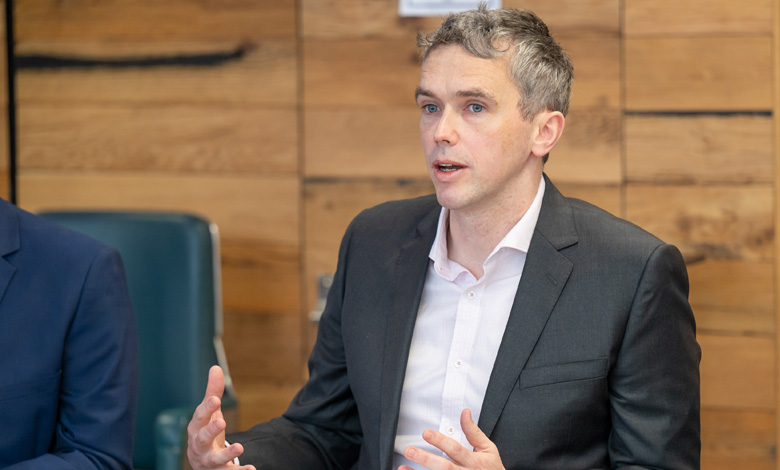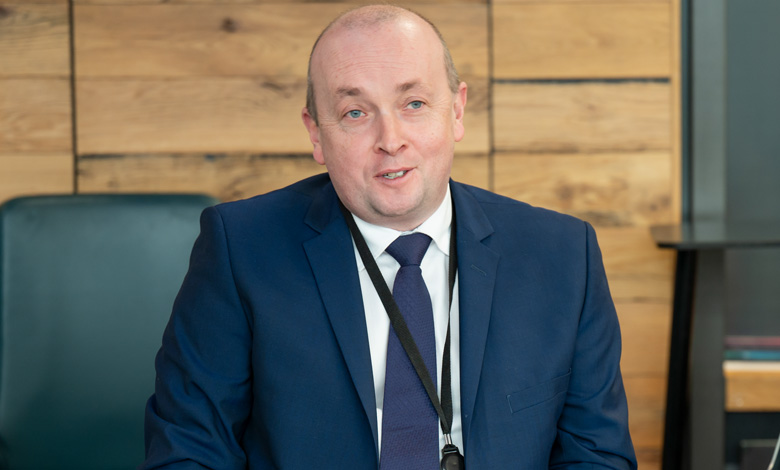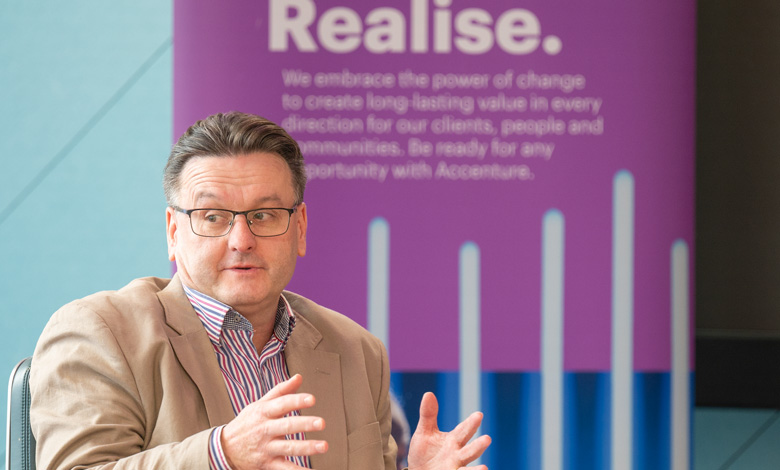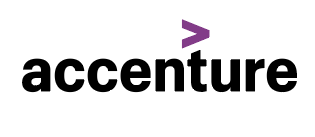Generative AI and opportunities to improve the way we deliver care
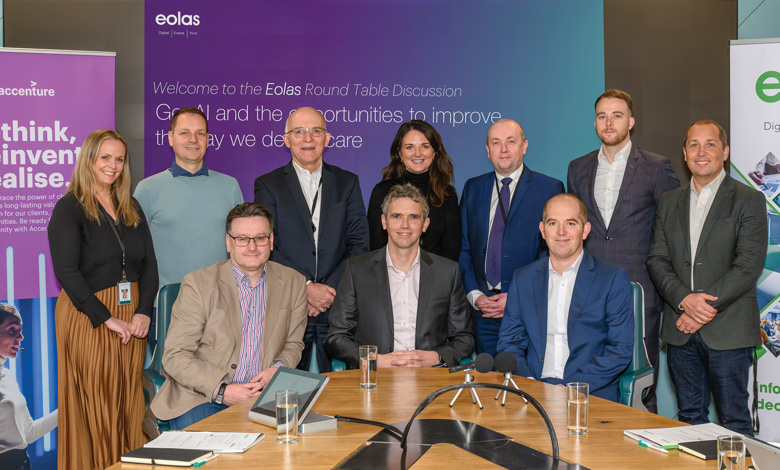
Accenture hosted a round table discussion with key stakeholders from across the healthcare system – including senior clinicians and IT leaders – to discuss how generative AI (GenAI) can enhance the way care is delivered in Ireland.
What are the opportunities for generative AI to improve healthcare delivery?
Joe Gallagher
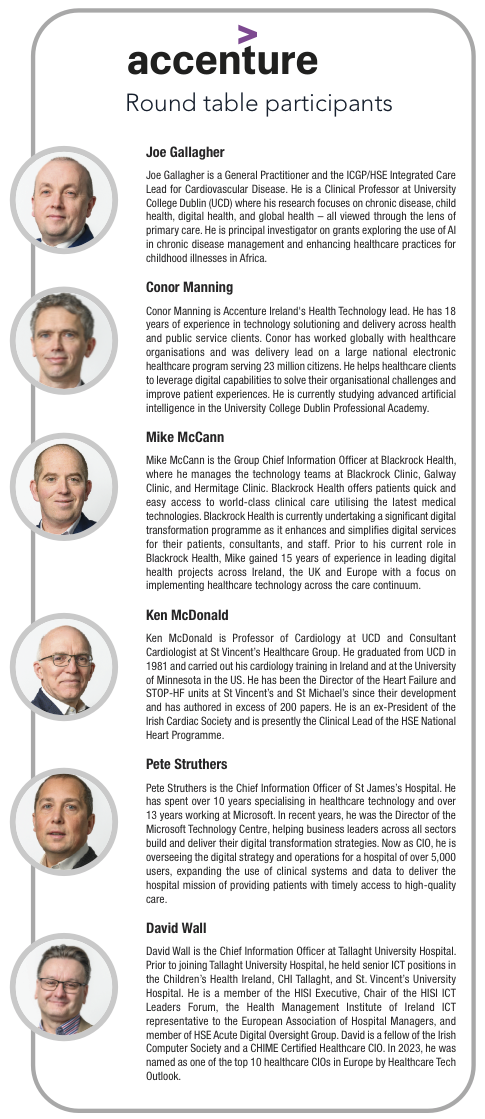
There are many opportunities and one of the challenges is figuring out where GenAI will fit best, particularly in the regulatory context. Workflow optimisation might be the starting point because it will be easier to implement there, and it could initially be the biggest win. GenAI will also have a role in supporting decision-making and will be useful from a research perspective to identify people who may be eligible or suitable for studies.
Conor Manning
Ireland has an ageing population and with that we see increased demand for healthcare services over the coming years. At the same time, there is a global shortage of healthcare skills. GenAI presents an opportunity to increase efficiency in healthcare delivery. Accenture has undertaken research on GenAI and its impact across industries, and we estimate that it has the potential to impact about 40 per cent of working hours within healthcare. That can apply in a clinical context, for example, where the AI listens to a doctor-patient interaction and documents the important points to save time on writing clinical summaries. It could also make recommendations for follow-up actions such as referrals. There would be apprehension around GenAI making decisions in a clinical context and rightly so. Instead, we envisage a human-plus-machine interaction where the clinician always makes the final decision.
Mike McCann
A statistic to be mindful of is that people forget around 80 per cent of what a medical professional tells them in a 15-minute consultation. There is an opportunity with GenAI to both simplify the language used and ensure that the patient is proactively involved in their own care via preventative care and rehabilitation. Conversely, one of the biggest challenges for all healthcare organisations is workforce retention. Currently, there is a massive challenge associated with medical profession burnout and we need to be cognisant of the fact that the more data we ask people to compile, the more overhead we are creating, reducing face-to-face time with patients. This is where GenAI can simplify things for both patients and clinicians.
Ken McDonald
I see GenAI being more assistive than autonomous. It will enable us to provide more effective and safer healthcare rather than take over from healthcare professionals. There are a specific areas I would prioritise: one is workforce enhancement in setting of skill capacity constraints. The population is getting larger, older, and more complex in terms of multimorbidity. GenAI could enhance the delivery of care in that context. The harmonisation of care is important to ensure equal access to care irrespective of where you live. Finally, there is capacity for this to provide a safety net for decision-making, not to replace human decision-making but to ensure that we are making the right decisions and minimising errors.
“[GenAI] can release more time for healthcare workers to undertake tasks which require their clinical expertise.”
Conor Manning
Pete Struthers
The use of synthetic data to accelerate innovation and research will be interesting. It is not without risk, but if it is done right, it creates the opportunity to use data quicker and more easily, while increasing its availability to people for things like treatments, drug developments, and also predictive analytics.
David Wall
The area in which I see the most potential is patient outcomes, particularly with any image-based speciality. Many hospitals, including Tallaght University Hospital, have embarked upon AI-based projects and these provided significant improvements in patient outcomes and benefits. These have been defined by assistance for clinicians, not replacement of clinicians. Certainly, any image-based speciality is now primed for GenAI to assist clinicians. We also know that the healthcare sector is at risk of cyberattack, and we are now seeing a lot of cybersecurity becoming AI-based.
How can we ensure ethical and responsible use of GenAI in healthcare delivery?
Ken McDonald
There is a bias in everything we do, and my own bias would be that this should be an assistive rather than an autonomous development in healthcare delivery. At a broader level, GenAI development is an intervention. As with any other intervention we bring into the healthcare arena, it must be tested rigorously. The predominant question is: does this enhance clinical outcomes and in a cost-effective manner? The standards that we uphold should not shift just because we are dealing with something complex. Tried and trusted testing will help determine the responsible use of GenAI.
Pete Struthers
Transparency is hugely important, especially when GenAI will have an impact on patients’ care. Transparently explaining how this technology has been developed and how it has made its decisions is important. For instance, if a patient has been moved down a waiting list, they will want to know why that decision was made and how the AI was trained. We need this transparency to help people understand that it is a support tool rather than something that is shaping the direction of their care.
“Ultimately, how we use GenAI will be determined by how we embed education and regulation into our organisations.”
Joe Gallagher
David Wall
We need appropriate rigour. Hospitals and healthcare institutions have thorough processes in place for things like research approval and while those may be time consuming, they are there for a reason. There must be clarity around what we are going to use GenAI for and what are we not going to use it for. Having ground rules and approval mechanisms to define these boundaries will be very important. While a national AI Ambassador has been appointed, the technology is overtaking all the processes that are currently in place and they must be brought up to the same level to compete with that.
Mike McCann
Before utilising GenAI, we must be clear on how we are using it and when this impacts patients. Patients must be informed clearly of what it is, what it is not, and their opportunity to opt out. For instance, we now undertake a significant amount of robotic surgery, and it is explained to patients that the robot is simply an assistive tool used by the surgeon, who remains in charge. However, there are still some people who opt out and do not want to be a part of that, even if most outcomes show better results when robotics are involved. Irrespective, as healthcare providers, we must facilitate the decision-making on the part of the patient.
Conor Manning
Healthcare organisations must establish the responsible AI principles and approach that we want embedded within their organisation. This must extend to the technologies that they are using which have been developed by third parties. It is important to ask if the technology has been developed responsibly with consideration to data privacy, traceability, transparency, etcetera. It is important that these principles are embedded within the organisations’ culture and that employees have a good understanding of how and when they should use AI, given third party apps such as ChatGPT will continue to be available to employees.
“We want to use AI in an assistive manner to help treat more patients, have more personalised care, and deliver better patient outcomes.”
Mike McCann
Joe Gallagher
Regulation is difficult because of the pace of change. It is better to establish principles rather than hard rules because principles allow for greater agility. Amid the hype, education is a key component of responsible use of GenAI. Bias is also an issue in our models as well, and if you explain too much you lose the power of the models, but if you explain too little it becomes difficult to know why a certain decision has been reached. Ultimately, how we use GenAI will be determined by how we embed education and regulation into our organisations.
How can Irish healthcare organisations overcome the most significant challenges to generative AI adoption?
Pete Struthers
There are national principles and guidelines which can educate citizens and healthcare staff, but there is also a challenge around what we do with our data. The benefits of GenAI will not be fully realised until we access the right data in the right way. There is a lot of work to be completed to get that right in a safe, secure, and ethical way for AI initiatives to take advantage of that.
Conor Manning
GenAI is dependent on very large volumes of curated data to be effective. In healthcare, the challenge is that a lot of data is on paper and where it is digitised, it could be in a silo, or hosted on a standalone server. It is important for health organisations to have strong digital foundations in place to capitalise on the potential of GenAI. This should include adoption of cloud where storage and computing are scalable on demand, security is inbuilt, and cloud native services are available. They should have an aggregated data layer and they should use modern SaaS platforms which have the latest AI capabilities inbuilt. That is not simple to resolve, and it will not happen overnight, but the important thing is to have the end-state target in mind and work towards it.
“I see GenAI being more assistive than autonomous.”
Ken McDonald
Mike McCann
We still have a lot of legacy tech in Irish healthcare; things that should never interact with GenAI. However, we cannot afford to put GenAI initiatives on the backburner until everything is perfect because then we will never make progress. Areas such as radiology, where the technology is more mature and we have larger datasets, are where we should be starting because we know that the risk is low, and the data quality is high.
David Wall
There is a fear factor that GenAI will render certain roles obsolete. We must engage with the healthcare workforce and patients to address this challenge. With the healthcare workforce, particularly ICT departments, are we training and recruiting people with AI skillsets? The vendors have these skillsets, but I have a real concern that hospitals and healthcare organisations do not. We must recruit for the delivery of effective oversight, familiarity with regulation and technology, and an ability to explain these technologies to others.
Joe Gallagher
We need AI governance committees replete with the requisite skillsets to make quick decisions and engage with stakeholders such as patients and clinicians. Healthcare is all about trust and if something goes wrong, things can quickly unravel.
Ken McDonald
Education in GenAI is fundamental and it must be implemented at foundation level for anyone involved in healthcare delivery, from policymakers to anyone at the frontline of service delivery. We need training to help us understand GenAI as much as is possible. We must then be comfortable enough to explain it to people whose care is being influenced by this technology. What differentiates the use of GenAI in healthcare in comparison to other sectors is the complex ecosystem involved in healthcare delivery. Coalescing this ecosystem around a unified approach is a massive challenge, so we need expert leadership nationally; people with a big-picture vision who will not tolerate parochialism or specific sector interest and will drive the national interest.
How can Ireland learn from successful adoption of AI in other countries?
Mike McCann
The US health system has led the way in developing new healthcare AI roles with clinicians being trained alongside data scientists – physician data scientists – to develop AI algorithms. This is a challenge to replicate in Ireland, where there are not enough medical professionals, but we must encourage a cohort of medical professionals into the IT sphere and cultivate a crosspollination. At the same time, with the technology moving so quickly and no known endpoint, it is difficult to keep pace. As such, organisations within the healthcare system must start small, clearly defined and be agile. There is also a significant amount of back-office administration in our hospitals that could be assisted by GenAI. This is broadly similar to other industries and offers a starting point.
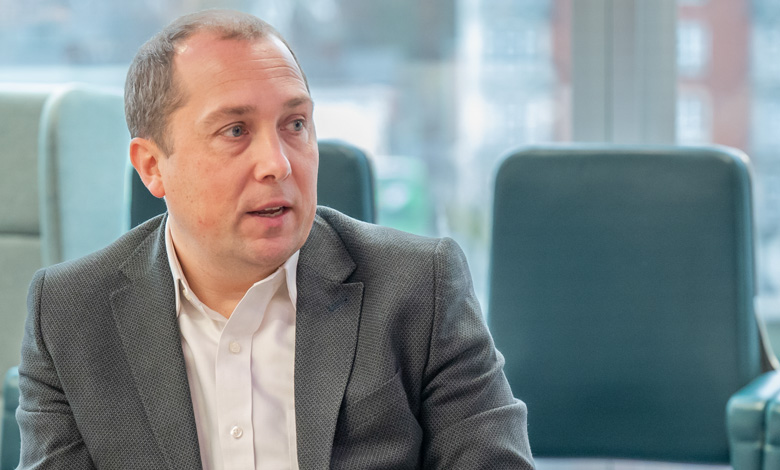
“Transparency is hugely important, especially when GenAI will have an impact on patients’ care.”
Pete Struthers
David Wall
The healthcare system must realise that new, multifaceted roles must be established within the workforce. At the same time, patients must be engaged and reassured of the regulation. Privacy concerns must be balanced against patient experience. If we want to provide patients with a better healthcare experience, there is a trade-off. Trust, transparency, and an understanding about why certain information is required.
Ken McDonald
Learning from external experiences of GenAI is one aspect of the role of the national leadership. As with everything in Ireland, we must have a strong outward vision because there is much we can learn. However, not everything that is shown to be effective in another jurisdiction can be uniformly applied to Ireland. We have different healthcare systems, different population expectations, and different societies. We must be cautious and apply a critical lens.
Conor Manning
One of my favourite examples in terms of successful GenAI adoption elsewhere is a UK government agency which serves more than 20 million citizens. Accenture began an automation journey with them in 2017 and this has been very successful, growing over time to save an estimated 24 million people hours in six years. Now, it has evolved into GenAI capabilities. Our UK partner receives eight million letters annually – some handwritten and some typed – which require processing. They would need 300 staff members to process them all and they have 40. We have collaborated with them on a GenAI solution which reads the letters, analyses them, determines the subject and sentiment of the letter, and prioritises them. From an Irish healthcare perspective, there are many elements of back-office administration that could benefit from this type of capability.
Pete Struthers
Similar to what Ireland has delivered through the National Imaging System, there are many countries which have undertaken work to establish the digital foundations of GenAI, including Finland and the Netherlands. Ireland can also learn from what the NHS has achieved with its AI labs in the UK. This clearly illustrates to patients and clinicians the NHS’ AI principles, successful use cases, and how to engage. Meanwhile, out of necessity, India has managed to extend the reach of healthcare, collaborating with the indigenous startup community to identify safe use cases and transform niche tasks. It is important, therefore, for us to understand what the Irish tech industry can offer in this space.
Joe Gallagher
The World Health Organization has undertaken significant work on AI, particularly in areas where there is no alternative. As well as learning from that, Ireland needs innovation hubs where existing solutions can be tested in controlled environments and their adaption to the Irish context can be observed before general adoption. This is not about technology alone; it is about securing the right fit for our healthcare system because the wrong fit has the potential to do more harm than good.
“GenAI is helping us manage our risk, creating a safer and more effective healthcare system.”
David Wall
What impact will the adoption of GenAI have on the healthcare workforce?
Joe Gallagher
People are worried about losing their jobs, but I do not believe that this is a likelihood in healthcare. Instead, I envision that GenAI in healthcare will release more time so that people can do their jobs more effectively. Very few people enter healthcare professions to sit behind a computer; they do so to care for people. This is a contributing factor in burnout; spending time completing tasks which are repetitive and time consuming. GenAI will unlock more personalised healthcare, and, in time, clinicians will have conversations with patients which will be accompanied by a summary note. It will also augment the skills of healthcare professionals, ensure that better decisions are made, and create new jobs in a great variety of positions.
Mike McCann
We want to increase the amount of time allocated to care, and we want to use AI in an assistive manner to help treat more patients, have more personalised care, and deliver better patient outcomes. We must be careful to ensure that this is done systematically to avoid enhancing one area of the health system but not another. For instance, we must be careful to ensure that we do not make diagnoses easier but not treatments. When looking at use cases, particularly clinical use cases, we must ensure that we have collaboration between all users – end-to-end – and take account of the entire care pathway. At the same time, we have shortage of talent in the healthcare system, and we are not seeking to replace people. Instead, we want to help those already working in the system. This message must be strongly communicated by leadership.
Pete Struthers
There are two challenges relating to the workforce: fear and defensiveness. GenAI is potentially going to tell clinicians when they have made a mistake or oversight. This must be understood and embraced. Even now with ChatGPT, prompt engineering is a key component of GenAI. This means asking the right question. Clinicians will also need to change the way they interact with patients to ensure that conversations are understood correctly. For instance, with ambient technologies that are listening and reacting, how a clinician speaks to a patient will have an impact on the outputs from that engagement from an AI perspective.
David Wall
GenAI is helping us manage our risk, creating a safer and more effective healthcare system. It is also creating many opportunities to identify new patient treatments. It is taking the data we have accumulated already, analysed it, accounted for the human factor, and determining what treatments are most effective. Simultaneously, there is a lot of discourse around new generations entering the workforce and their preferred methods of interaction. Patients are no different, and they have expectations for their healthcare. As a result, we must embed AI within professional training, ensuring that people are aware of the technology and know how it should be used and how it should not be used.
Ken McDonald
As with any major change, there are fears and worries. That is understandable and education is central to the response. Rather than waiting for more challenges to arise, we must be proactive with this education, explaining to healthcare providers that AI will not replace jobs. Instead, AI can be used to enhance job satisfaction and reduce the risk of burnout. This reassurance will go some way convincing more sceptical healthcare colleagues because having a non-aligned growth of AI will not leverage it to its maximum capacity.
Conor Manning
Education is key, as is the wellbeing of healthcare workers when GenAI is introduced. When GenAI automates more mundane tasks which do not require human intelligence, it can release more time for healthcare workers to undertake tasks which require their clinical expertise. By spending more time on this type of work which requires more thinking there is a new risk of burnout. GenAI should not simply be about introducing new technology but will need a reinvention of the way that care is delivered to enhance productivity while also improving the health and wellbeing of the workforce. This will be important to ensure the best talent is recruited into and retained within the healthcare system.

